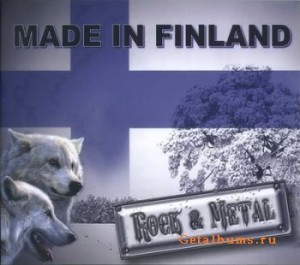 I’ve been working for a number of years to get to the point in Russian that I can read one of my favorite authors, Leo Tolstoy, in the original. For stylistic masters like Tolstoy or Proust, a lot gets lost in translation. Apparently for some fans of Finnish heavy metal band Hevisaurus, it’s just as important to learn the language to appreciate the subtle nuances in their lyrics. According to a recent article in the Wall Street Journal, the popularity of Nordic heavy metal bands has led a number of young people to learn Finnish or Norwegian, the native tongues of many heavy metal bands. According to one U.S. fan cited in the article, Michael Brown,
I’ve been working for a number of years to get to the point in Russian that I can read one of my favorite authors, Leo Tolstoy, in the original. For stylistic masters like Tolstoy or Proust, a lot gets lost in translation. Apparently for some fans of Finnish heavy metal band Hevisaurus, it’s just as important to learn the language to appreciate the subtle nuances in their lyrics. According to a recent article in the Wall Street Journal, the popularity of Nordic heavy metal bands has led a number of young people to learn Finnish or Norwegian, the native tongues of many heavy metal bands. According to one U.S. fan cited in the article, Michael Brown,
Finnish bands perform with a “dark woodsy resonance” that he has come to love, he says, and “the poetic and obscure nature of the Finnish tongue really gave it a unique wave.”
It’s not that Finnish is an easy language to learn. It’s not part of the Indo-European family of languages but rather belongs to the Uralic group, along with Hungarian and Estonian. As a consequence there are fewer recognizable cognates for English native speakers and the grammar has a notoriously steep learning curve, being heavily inflected, with its 15 (!) cases. Norwegian (an Indo-European language), in comparison, is a piece of cake, with a very simple grammar, similar to its Scandinavian cousins, Danish and Swedish. Heavy metal fans would be well advised to keep that difference in mind and try to find Norwegian bands to like.
The article speculates that there is a connection between the often apocalyptic nature of heavy metal lyrics and Nordic culture:
Olivia Lucas, a Harvard doctoral candidate who is working on a dissertation about Nordic metal, said people “simply want to understand what the culture is like that has produced this music.” It doesn’t take long, she said, to draw a parallel between the melancholy and gloom that underpins Finnish metal and the wider Finnish psyche. “Finns are comfortable with this feeling, and don’t feel pressure to be cheerful all the time,” Ms. Lucas, 25, said. Their music “embraces this view of the world.”
According to the article, Norwegian “black metal” is even darker in tone and was long tainted by an association with violence. Nowadays, however, it has gone mainstream, with the Foreign Ministry of Norway giving its trainees seminars on black metal because there are so frequently questions about it raised at Norwegian embassies throughout the world.
The article brought to mind for me an interview earlier this year on NPR with a black woman, Laina Dawes, a fervent heavy metal fan, who wrote a book on her struggle to find acceptance as an African-American woman in the mostly male and white heavy metal scene.